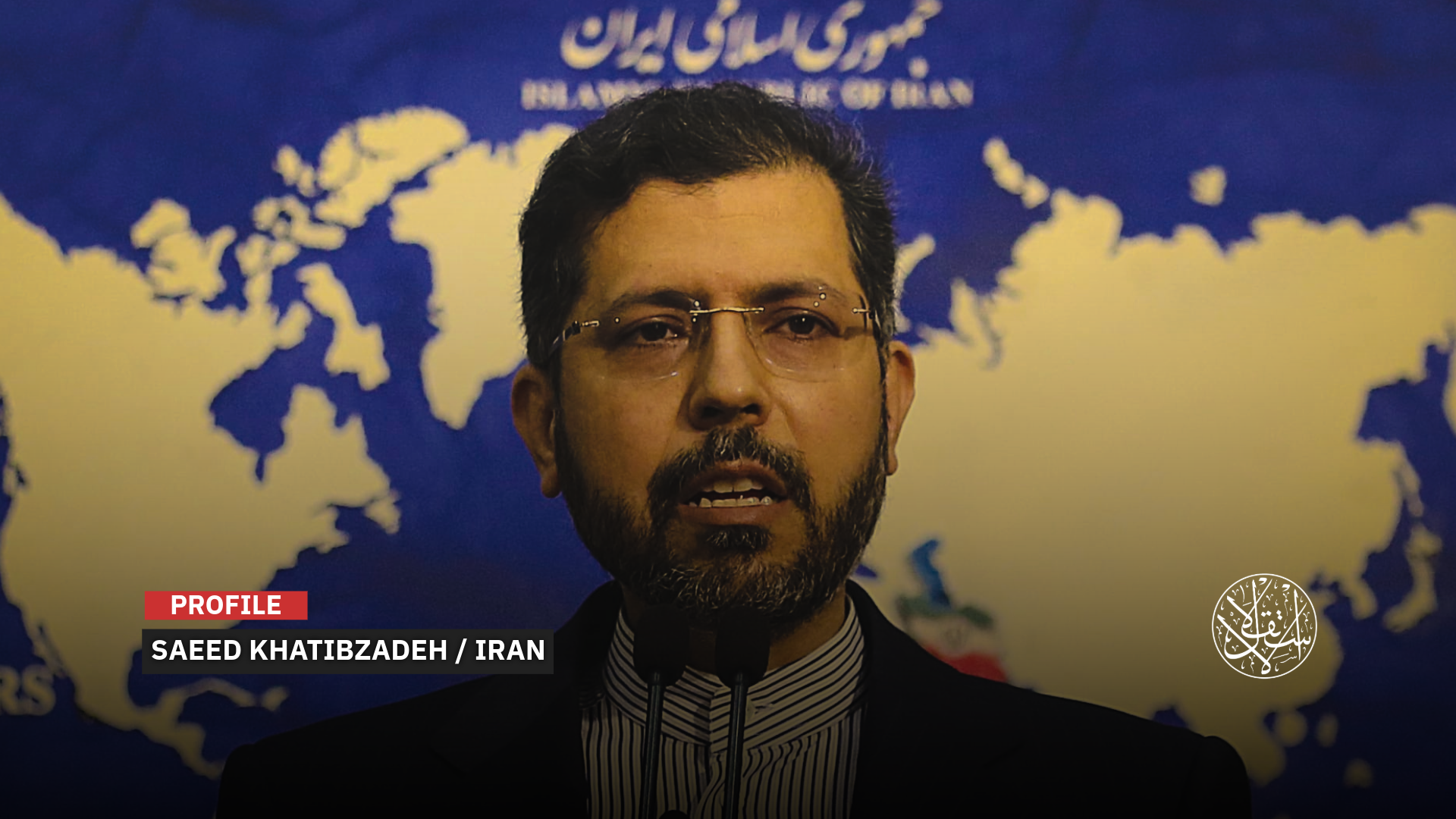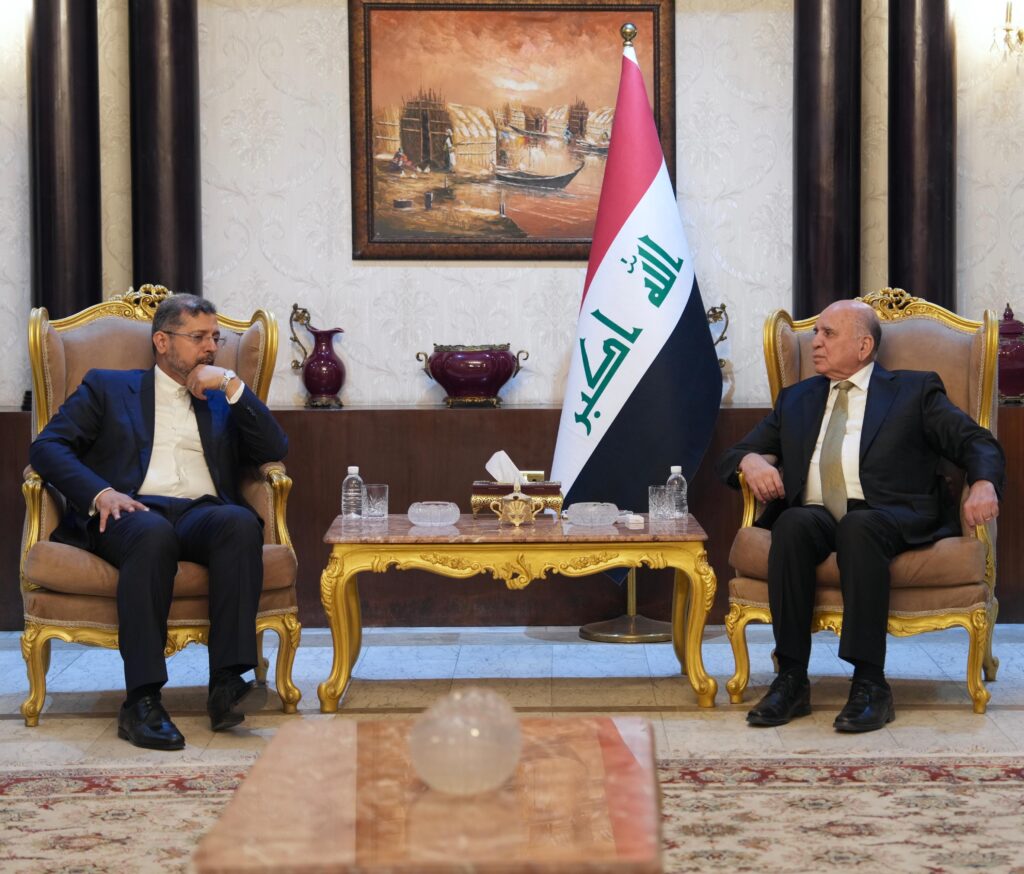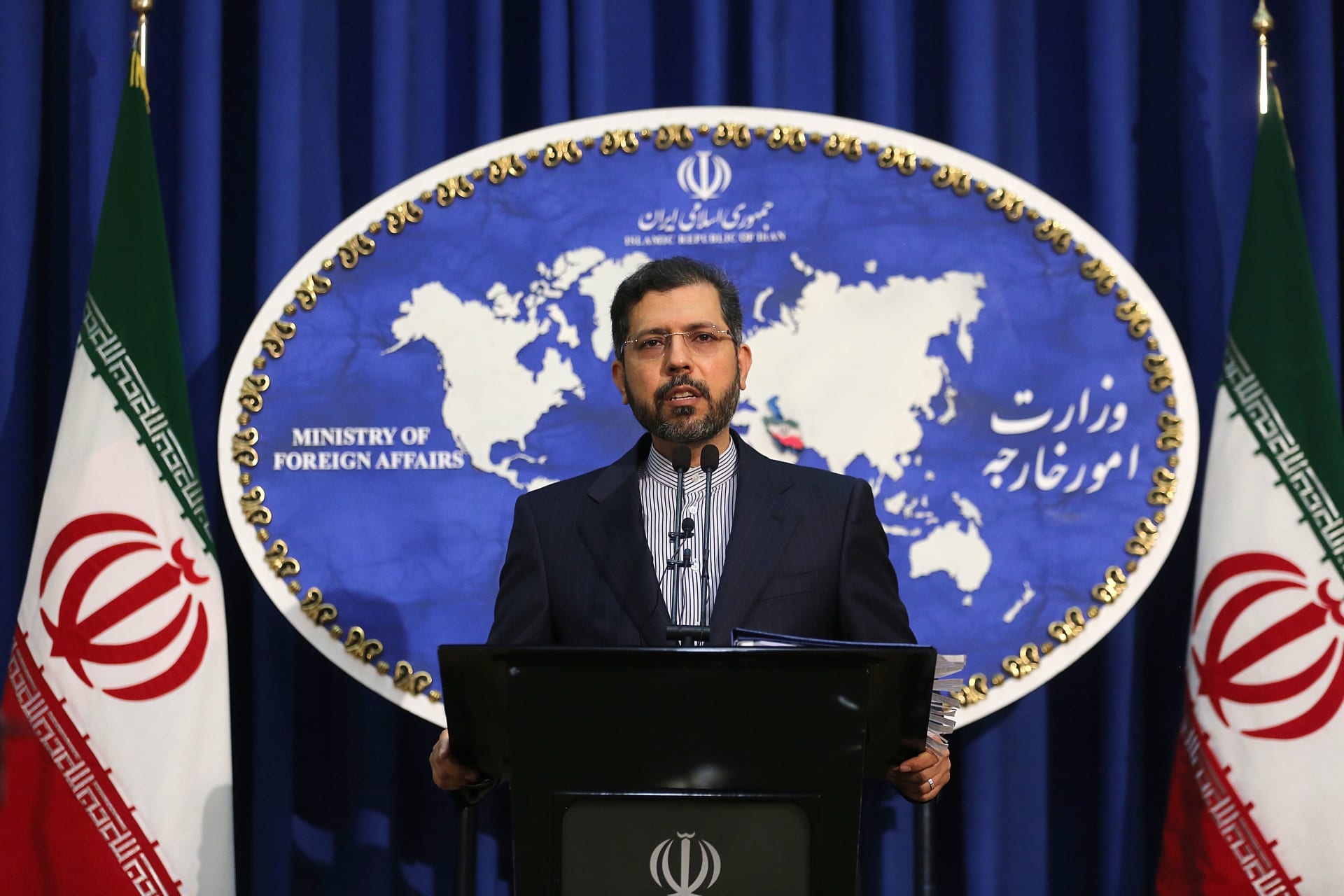Saeed Khatibzadeh: Araghchi’s Window to Expanding Iran’s Soft Power

Saeed Khatibzadeh serves as deputy to Iran’s Deputy Foreign Minister Abbas Araghchi.
Iranian diplomat Saeed Khatibzadeh has been making headlines for months, not only because he once served as the Foreign Ministry’s spokesman and later as an ambassador, but also because he is regarded as the youngest figure in Tehran’s diplomatic circle with the credentials to rise as deputy to the foreign minister and head of one of the ministry’s most influential think tanks.
On January 25, 2025, Foreign Minister Abbas Araghchi appointed Khatibzadeh as his deputy and as director of the ministry’s Institute for Political and International Studies, a key post that helps shape Iran’s foreign policy and functions as an official state brain trust.
Araghchi’s Arm
Khatibzadeh has also emerged as Araghchi’s close envoy. His most recent trip abroad came on September 3, 2025, when he visited Baghdad and met Iraqi Deputy Prime Minister and Foreign Minister Fuad Hussein. He delivered a formal invitation from Araghchi for Hussein to visit Tehran.
According to the Iraqi Foreign Ministry’s statement a day earlier, the meeting covered the future of bilateral relations and ways to strengthen them, along with discussions on current regional and international developments and Iran’s ongoing nuclear talks with the European troika.
Khatibzadeh also briefed Iraqi officials on the realities of “Israel’s” aggression on Iran and their impact on Iranian politics and society, stressing that these conditions forced Tehran to rethink its security and military concepts as well as its broader political approach to international relations.
Yet Iranian and Iraqi media offered different accounts of the visit. Tasnim News Agency reported that Khatibzadeh emphasized the need to support the resistance and to confront what he called “ambitious projects aimed at redrawing the region’s map.” The outlet also noted that Araghchi’s invitation to his Iraqi counterpart had been formally delivered, a detail not mentioned in Baghdad’s official statement.
Iraq’s al-Aaleem al-jadeed newspaper cited unnamed sources saying the trip took place at the request of the Iraqi government. Araghchi had originally planned to visit Baghdad himself, but canceled due to scheduling conflicts.
As the Iranian envoy called for stronger backing of the resistance, the newspaper reported that Baghdad is determined to de-escalate regional tensions and prevent the outbreak of another war, which it fears would devastate Iraq first and foremost. It added that Iraqi officials are also working to keep local factions from getting dragged into conflict. Khatibzadeh, according to the paper, expressed Tehran’s understanding of Baghdad’s position.
Since taking office at the end of January 2025, Saeed Khatibzadeh has carried out five trips abroad, visiting only three countries. He traveled twice to both Iraq and Turkiye and once to Azerbaijan, where he also met with officials from European and Arab states and even from the United States.
One of his most talked-about encounters came at the age of 46, when he exchanged phone numbers with former U.S. Assistant Secretary of State Barbara Leaf during the Sulaimani Forum in Iraq’s Kurdistan Region on April 17. The moment sparked wide debate on social media.

Author and Thinker
Born in Tehran in 1979, Saeed Khatibzadeh graduated from Allameh Heli High School and from the National Organization for the Development of Exceptional Talents. He went on to study political science and international relations at Tarbiat Modares University, where he later earned his PhD in the same field.
In addition to Persian, Khatibzadeh speaks English, German, and Arabic. He spent many years in academia and has extensive teaching experience across different levels of education.
With 21 years of diplomatic experience, he served as deputy director of research at the Foreign Ministry’s Institute for Political and International Studies before becoming the ministry’s spokesman and later Iran’s ambassador to Croatia.
He has also held positions as director of the ministry’s English-language journal, head of publications, chief of the studies office, and adviser to the deputy director for education and research. His diplomatic service included postings in Canada and Germany.
Khatibzadeh has been active in think tanks, delivering speeches at international conferences, and publishing several books. His works include Iran's Economic Diplomacy: An Assessment of Iran's Economic and Trade Cooperation with Japan, China, and South Korea, published in English in Japan. He also authored The American Green Book, one of the Foreign Ministry’s best-selling titles, and The German Development Model.
Although not an official member of Iran’s nuclear negotiating teams, Khatibzadeh played a visible role by acting as an analytical and media bridge between the negotiators and the public, shaping Iran’s international messaging in response to shifting regional and global dynamics.
Before his tenure as Foreign Ministry spokesman from 2020 to 2022, he appeared frequently on China’s Phoenix TV, where he often described Beijing as a more stable strategic partner than what he called the unpredictable West.
A prolific writer and intellectual, Khatibzadeh has authored numerous articles on topics such as the post–Cold War world order, U.S.–Soviet rivalry from 1947 to 1991, and what he views as the decline of Western centrality.
Before becoming Deputy Foreign Minister and Head of the Institute for Political and International Studies, he served as Iran’s Ambassador to Croatia, an adviser to the Foreign Minister, a senior diplomat at the embassies in Germany and Canada, and Director of Publications at the Ministry.

The Architect of Influence
Iranian media outlets describe Saeed Khatibzadeh as playing a central role in shaping and executing Tehran’s influence operations in the West, according to Iran International.
The opposition channel reported, citing thousands of leaked emails from Iranian diplomats, that Khatibzadeh was the mind behind a Foreign Ministry initiative to build a network of academics and analysts in think tanks as part of Iran’s broader soft power strategy.
While serving in Berlin in 2014, he proposed the creation of what became known as the “Iran Experts Initiative.” In a March 5, 2014, email to senior nuclear negotiator Majid Takht Ravanchi, Khatibzadeh said, “This initiative which we call ‘Iran Experts Initiative [IEI]’ is consisted of a core group of 6-10 distinguished second-generation Iranians who have established affiliation with the leading international think-tanks and academic institutions, mainly in Europe and the US.”
The core network envisioned between six and ten prominent Iranian figures. On April 14, 2015, Khatibzadeh sent a list of articles and interviews produced by members of the initiative in support of Tehran’s nuclear negotiations. The names he forwarded to Mostafa Zahrani, the then head of the IPIS in Tehran, included Ali Vaez, Ariane Tabatabai, Dina Esfandiary, Ellie Geranmayeh, Adnan Tabatabai, and Rouzbeh Parsi.
In 2016, Khatibzadeh detailed in another email his ongoing efforts to engage think tanks, with a focus on the nuclear talks, saying the goal was to push Iran’s foreign policy “to the highest levels” while ensuring dozens of published articles aligned with Tehran’s diplomatic narrative.
According to Iran International, Zahrani later confirmed that the Iran Experts Initiative was one of the institute’s flagship projects. Now under Khatibzadeh’s leadership, the institute continues its mission, with him widely seen as the chief architect of Iran’s attempts to influence U.S. foreign policy.
“Khatibzadeh played a role in the crafting of the ‘Iran Experts Initiative,’ which was used as a malign influence operation by the regime during the JCPOA negotiations in 2013-15. His appointment signals a likely return of similar efforts during the Trump era,” said Jason Brodsky, the policy director of the U.S.-based advocacy group United Against Nuclear Iran (UANI).
Sources
- Mastermind of Iran's US influence effort appointed head of ministry think tank
- The Hidden Diplomacy Game: What Did Tehran's Envoy Suddenly Bring to Baghdad? [Arabic]
- Iran’s Foreign Ministry Names New Spokesperson
- The Deputy Prime Minister and Minister of Foreign Affairs Receives the Iranian Deputy Foreign Minister to Discuss Bilateral Relations and Regional and International Developments [Arabic]
- Saeed Khatibzadeh Appointed as 12th Spokesperson of the Ministry of Foreign Affairs [Persian]
- Saeed Khatibzadeh Received His Appointment [Persian]
- Saeed Khatibzadeh [Persian]
- Biography: Saeed Khatibzadeh (1979-) [Persian]
- From Baghdad: An Explicit Iranian Call to 'Support the Resistance' [Arabic]
- Araghchi Appoints Khatibzadeh Head of Foreign Ministry Think Tank [Arabic]








